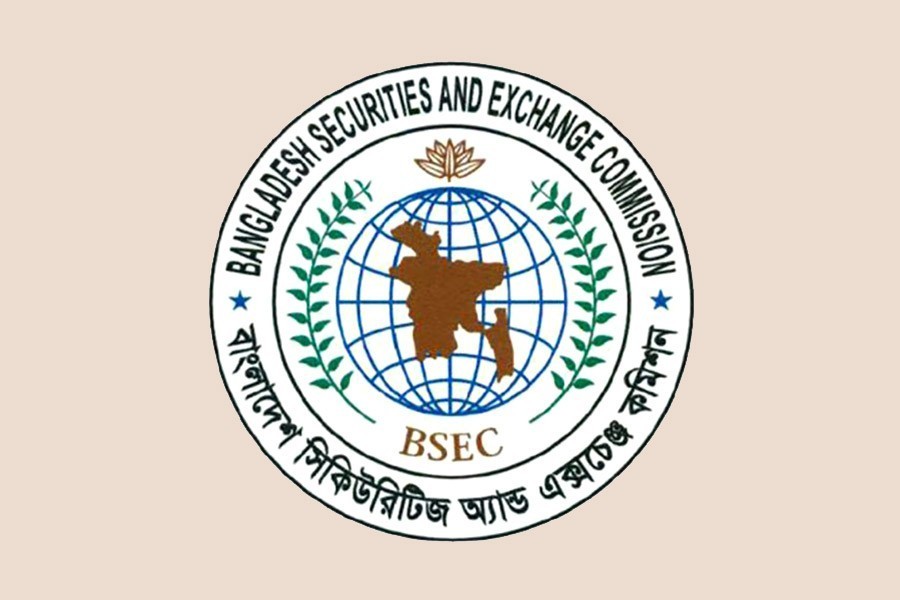The securities regulator seeks policy support, especially from the revenue board, to attract non-listed but good companies into the stock market so it gets strengthened when majority securities are lying low amid heightened economic threats this year.
The market would get a boost, as anticipated, even in the depressed economy if more companies with strong fundamentals get listed on the bourses.
The Bangladesh Securities and Exchange Commission (BSEC) considers proposing tax incentives for the public listing of companies. In doing so, it aims to achieve a wider tax gap between the listed and non-listed companies so the latter feel inspired to go public.
The gap of 10-15 per cent, a senior official of the securities regulator said requesting anonymity, in corporate taxes would be high enough to serve the purpose.
In the national budget for the fiscal 2023, the government reduced the corporate tax for publicly-traded companies, which had shares worth more than 10 per cent of its paid-up capital issued to the public through IPO, to 20 per cent from 22.50 per cent.
Those that issued shares worth 10 per cent or less of its paid-up capital through IPO are required to pay 22.50 per cent tax.
The changed tax rate could enlarge the tax gap but the corporate tax paid by non-listed companies had also been decreased to 27.50 per cent from the previous rate of 30 per cent.
Subsequently, the corporate tax gap for listed and non-listed companies fell to 5-7.50 per cent from the previous flat rate of 7.50 per cent.
The FY23 budget, however, kept the corporate tax rate for publicly-traded banks, insurers and financial institutions unchanged at 37.50 per cent and non-publicly traded banks, insurers, and financial institutions at 40 per cent.
The tax rates for publicly and non-publicly traded mobile operators also remained unchanged at 40 per cent and 45 per cent.
"None of the large companies got listed on the stock exchanges. Why would they if they aren't offered any incentives?" said BSEC Commissioner Dr Shaikh Shamsuddin Ahmed.
"The revenue board should address the missing link. We need to widen the tax gap."
The Dhaka and Chittagong bourses have 353 stocks in total. The market falls hugely short of large cap stocks. Only 20 top companies have equity ranging from Tk 36 billion to Tk 386 billion, according to the data available until the end of 2022.
These companies include Grameenphone, Walton Hi-Tech Industries, British American Tobacco Bangladesh Company, Robi Axiata and Square Pharmaceuticals.
As the market is crowded by small cap companies, only top 10 companies often grab 30-45 per cent of the daily turnover.
BSEC Commissioner Mr Ahmed insisted that non-listed companies would not show interest in coming to the market if the existing tax gap remained.
Stakeholders point out other discouraging factors. Once listed, companies have to follow strict corporate guidelines and report periodical business growth.
The emphasis is, however, on established but non-listed companies that, the BESC believes, can make the market vibrant. Such companies may not have compliance issues.
Some issuers, however, express concerns over the book building method used to set the face value of shares floated through IPO, said Md. Moniruzzaman, managing director of the IDLC Investments.
As per the existing valuation method, a company's share price will not exceed the average of the latest net asset value (NAV) plus 10 times the annual average earnings per share (EPS) over the previous five years.

"Although the regulator says that they will be flexible in case of companies with good fundamentals, the issuers become jittery when it comes to offloading shares," Moniruzzaman said, adding that the companies expect a higher valuation if they have promising future prospects.
The BSEC's spokesperson, Mohammad Rezaul Karim said the existing share price fixing method is globally accepted.
"Future forecast comes into play when all intermediaries including the auditors work properly. Nevertheless, the regulator has the scope of considering exemption if good companies show interest in getting listed," he said.
Another barrier, experts say, is easy access to bank loans. The stock market's main role is to help companies raise capital but if funds are available from banks, companies lack reasons to become public.
They say that wider corporate tax gaps in earlier years failed to attract new companies because of the easy liquidity flow from banks.


